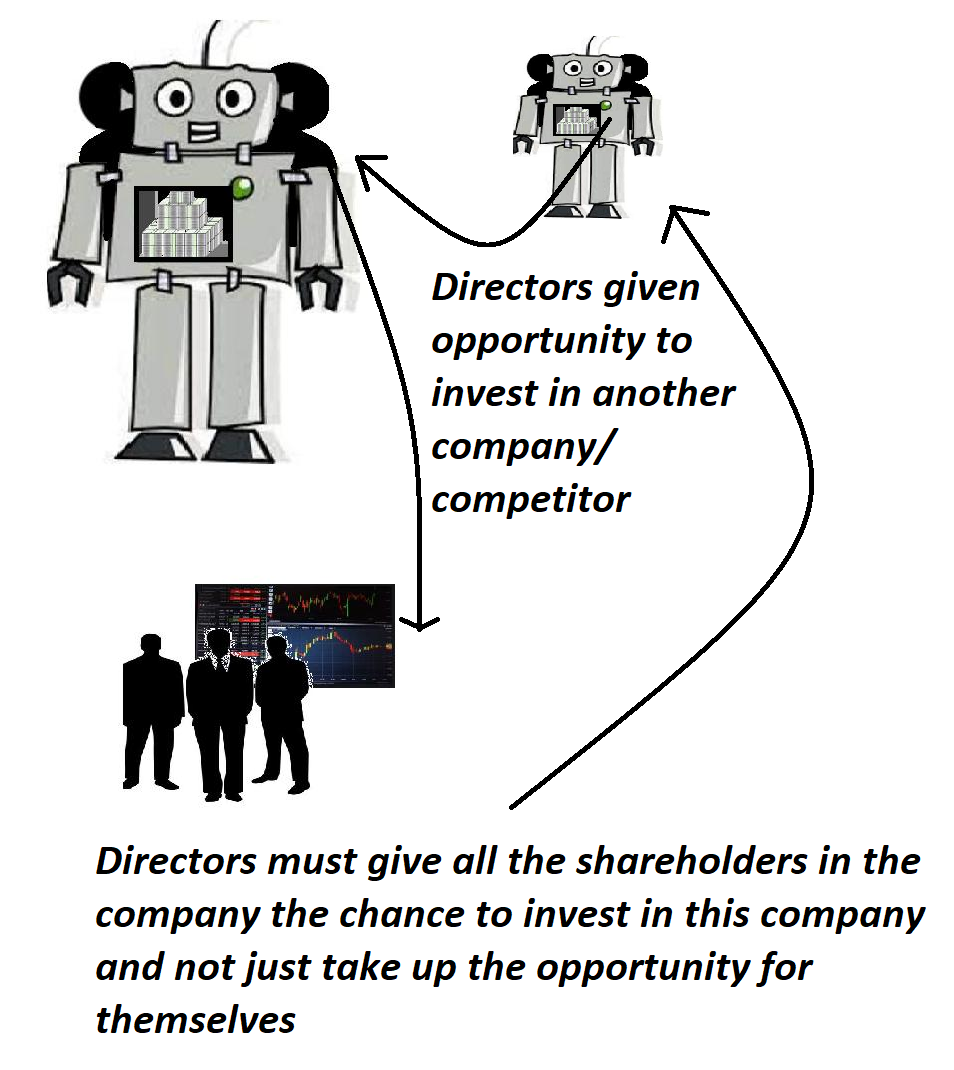Regal (Hastings) Ltd v Gulliver [1942] UKHL 1
Citation:Regal (Hastings) Ltd v Gulliver [1942] UKHL 1
Rule of thumb:Can directors personally invest in competitors? No, directors have to do this through the company they are a director of. Directors have to offer all business opportunities to their shareholders and show loyalty to them.
Background facts:
The facts were that Regal Hastings Ltd owned a cinema. The business was going well and they wanted to rent 2 more cinemas. The directors set up a new company to lease the new cinemas, and £2000 worth of Regal Hasting Ltd’s capital was put into the company to finance it. Evidence was led that Regal Hastings Ltd could not afford to put in any more capital. The owner of the cinemas stated that a deposit of £5,000 was needed to be put down to get the cinemas leased. The directors then came up with the extra £3,000 themselves and took 60% of the shares in the new subsidiary. The cinemas took off and did well and the subsidiary was sold at a profit, meaning that the directors took 60% of the profits on the sale.
Judgment:
Regal Hastings Ltd successfully sued the directors to take all of the shares. It was held that the directors cannot make profits themselves at the expense of business opportunities which the existing company shareholders would be interested in taking – they can only invest in companies which their company is not in competition with. If the shareholders had ratified the directors doing this first, then this would have been okay, but they did not, meaning that the directors had to pay back the profits which they made – it is not sufficient just to say that the company could not afford it, because there is always the option for a share issue or other funding mechanisms – formal ratification must be sought.

Ratio-decidendi:
‘The rule of equity which insists on those who by use of a fiduciary position make a profit, being liable to account for that profit, in no way depends on fraud, or absence of bona fides; or upon questions or considerations as whether the property would or should otherwise have gone to the plaintiff, or whether he took a risk or acted as he did for the benefit of the plaintiff, or whether the plaintiff has in fact been damaged or benefited by his action. The liability arises from the mere fact of a profit having, in the stated circumstances, been made.” Lord Russell of Killowen,“ "The Court of Appeal held that, in the presence of any dishonest intention, or negligence, or breach of a specific duty to acquire the shares for the appellant company, the respondents as directors were entitled to buy the shares themselves. Once, it was said, they came to a bona fide decision that the appellant company could not provide the money to take up the shares, their obligation to refrain from acquiring those shares for themselves came to an end. With the greatest respect, I feel bound to regard such a conclusion as dead in the teeth of the wise and salutary rule so stringently enforced in the authorities. It is suggested that it would have been mere quixotic folly for the four respondents to let such an occasion pass when the appellant company could not avail itself of it; Lord King, L.C., faced that very position when he accepted that the person in the fiduciary position might be the only person in the world who could not avail himself of the opportunity." Lord Wright (at 157)
Warning: This is not professional legal advice. This is not professional legal education advice. Please obtain professional guidance before embarking on any legal course of action. This is just an interpretation of a Judgment by persons of legal insight & varying levels of legal specialism, experience & expertise. Please read the Judgment yourself and form your own interpretation of it with professional assistance.

